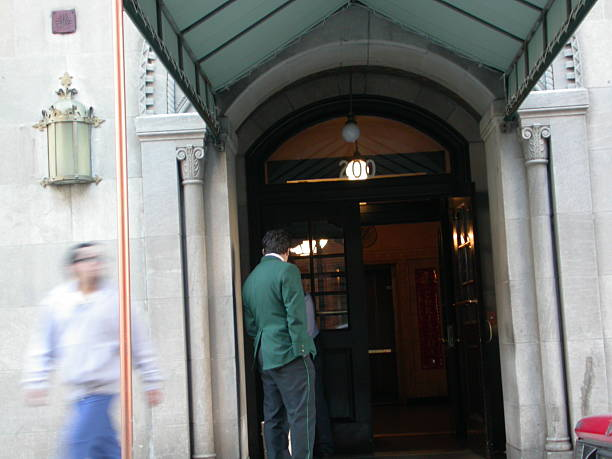NYC Doorman Strike Narrowly Avoided

Residents of luxury buildings across New York City can breathe easier. In mid-April, a union representing employees of the city’s more than 3,000 luxury properties struck a deal with the Realty Advisory Board on Labor Relations, also known as the RAB, narrowly avoiding a strike that could have wreaked havoc on the lives of thousands who call such buildings home.
In early April, more than 30,000 doormen and other workers at NYC luxury buildings were poised to go on strike – the first one authorized in over three decades. When negotiations began, the RAB, representing landlords and property owners across the city, wanted employees to start paying monthly premiums for their family health insurance plans and accept cuts to paid time off.
However, union employees balked at the demands, likening the request for employees to start paying health insurance premiums to a pay cut. Most employees of luxury buildings live paycheck to paycheck, so the union cited the request as unacceptable.
The negotiations, which started in early March, dragged on until the union representing the workers, 32BJ SEIU, authorized the first strike in more than 30 years. Workers were getting ready to go on strike, and many luxury buildings were bracing for chaos when the RAB came through with a new contract that the union could agree on.
Under the terms of the new agreement, union employees of NYC’s luxury buildings will receive a 3% pay increase, increasing the typical salary for such a worker to around $62,000. With the median income for NYC standing at around $67,000, the salary is still lower than average. The covered health insurance premiums are regarded as part of employees’ compensation, so asking them to start paying those premiums would erode their take-home pay even more.
The new agreement, which goes into effect in April 2026, will continue to cover employees’ health insurance premiums for family health insurance plans. The robust plans also include dental and vision coverage, making them valuable to employees. Union employees will also receive a one-time, $3,000 bonus as part of the new contract.
Negotiations netted a few additional changes for the new luxury building employees’ union contract. The probationary period for new hires was extended, meaning they could be let go for a longer window of time upon being hired. The new contract also amends grievance and arbitration processes, making them smoother and more streamlined.
Although the RAB ultimately caved and agreed to the terms of the new contract, the organization says that the thousands of NYC landlords it represents have struggled since the pandemic and cutting costs for health insurance would help. The organization stated that the pay raise requested to cover rising inflation was not reasonable.
During the pandemic, NYC landlords lost more than $2 billion in unpaid rent. Many buildings lost tenants; others had to offer concessions like reduced rent to keep them, cutting revenues even more. At the same time, maintenance costs for luxury properties shot up because of the health crisis, with properties having to invest in personal protective equipment and upgraded cleaning supplies.
With the strike narrowly avoided, service has not been disrupted for the more than 3,000 luxury buildings housing thousands of New Yorkers. However, the standoff between the union and the agency representing landlords highlights the ongoing issues plaguing the city’s rental and housing markets. Asking rents have increased by more than 40% in Manhattan over the past year, but landlords still say those increases aren’t enough. Rents are expected to keep rising throughout 2022, and the union workers involved in the latest negotiations have locked in benefit and pay increases this time around. Still, things could change quickly in the future.




